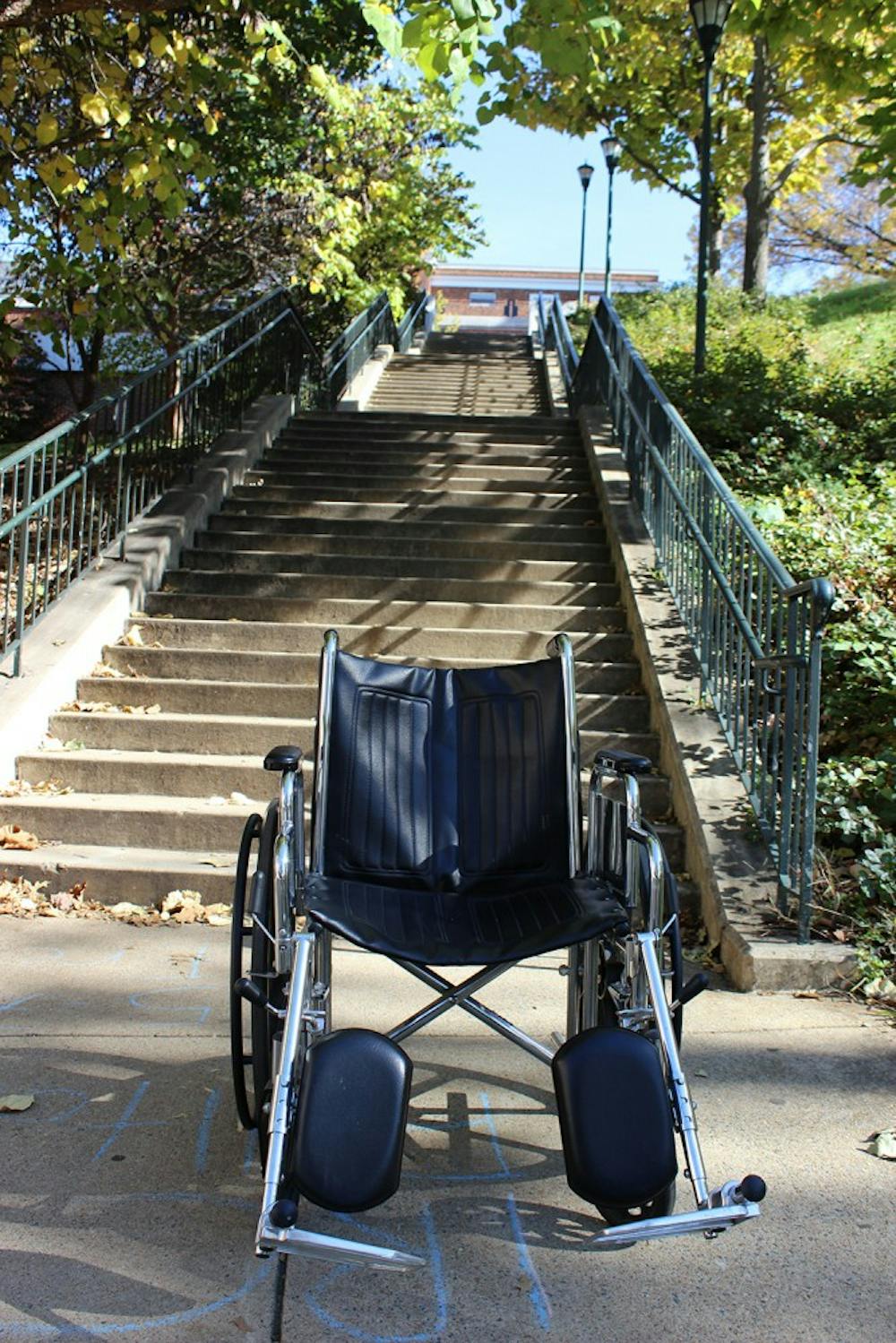As part of Disability Acceptance Week, members of the University community discussed the level of accessibility of Grounds to those with physical disabilities.
The lectures and events associated with the week aim to increase public awareness, said OpenGrounds Program Manager Angela Nemecek.
“I think one of the major goals is just to bring visibility and acceptance to the many kinds of disabilities — to get away from the idea that disabilities are all physical or visible,” Nemecek said.
Nemecek said another important aspect of the week is emphasizing diversity in disability.
“That’s a piece of it too,” she said. “To get away from the idea of disability as some kind of misfortune that befalls people and think of it as just as another aspect of human diversity, like race or sexual orientation.”
Dr. Robert Diamond, the director of the Student Disability Access Center (SDAC) and a clinical psychologist, hosted a discussion Wednesday in which he described the unique challenges the University faces, being situated on a historic site and in an area with varied topography including hills, winding roads and outside staircases.
The University has a problem regarding physical accessibility, as do many older schools, Diamond said.
“From a physical accessibility standpoint, U.Va. has a problem comparable to that of many older schools. We have many older, often historic, building that have significant accessibility issues,” Diamond said.
The University must follow federal guidelines with regard to accessibility, but Diamond said sometimes, instead of following the letter of the law, his office must pursue the intent of the law. He said the University is anything but complacent with these rules.
“The University has made a commitment to address these issues and there is a twofold approach of ensuring accessibility of new construction and taking advantage of repairs/restoration to improve physical accessibility,” Diamond said. “There is much to do, but progress is being made.”
With the recent construction and renovation of many University buildings, Diamond said the Office of the Architect and the construction contractors are taking accessibility issues into account, especially considering doors with automatic openers, wide doorways and easily accessible restrooms.
“There is an Accessibility Committee, run by Winn Stuart that meets regularly to review plans for new construction, building renovation and landscape architecture,” Diamond said. “The focus is on making both exterior grounds and building accessible and navigable by wheelchairs, electronic scooters, etc.”
On the University website, in compliance with the American Disability Act Coordinator and Equal Opportunity Office, there is an up-to-date, interactive map of Grounds detailing different buildings and areas as either “barrier free,” “partially accessible,” or “other.” In addition, students and academic faculty with a permanent or temporary physical disability with a University parking permit can request reserved parking. There are special systems to accommodate those with disabilities for football and basketball games as well.
A program through the Provost’s Office called “Report a Barrier” allows students and faculty to alert administration of areas which could cause trouble for those in wheelchairs or on scooters
“One of our basic beliefs, and this is change in experience from prior academic settings, is that each individual student is the one to make the final choices whether or not to accept offered accommodations,” Diamond said. “We want the student with disabilities to know that they will always be in control in dealing with us.”
Other events scheduled for Disability Acceptance Week included a film screening of “Adam,” a romantic drama in which the main character has an Autism Spectrum disorder on Tuesday, a discussion of legislature relating to disabilities on Monday.
—Caitlyn Seed contributed to reporting







